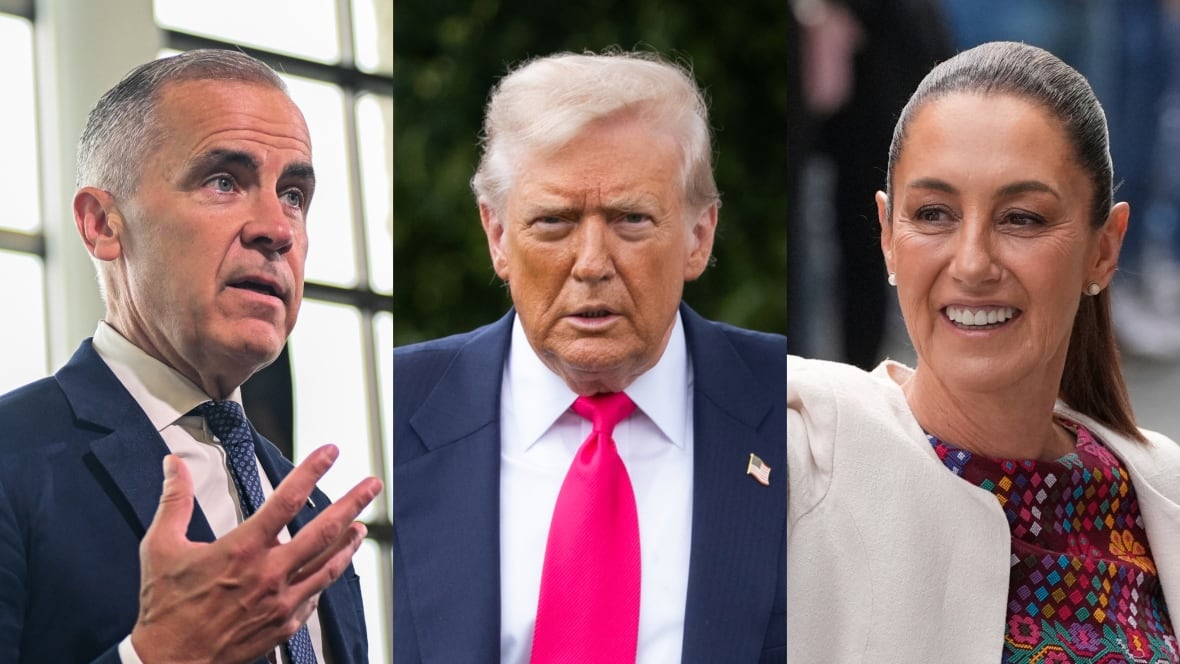U.S. commerce secretary dismisses question that free trade with Canada is dead

U.S. Commerce Secretary Howard Lutnick is dismissing the question of whether U.S. free trade with Canada is dead, calling the notion "silly" and saying a substantial amount of Canadian goods enter the U.S. tariff-free under the current North American free trade deal.
"We have a plan called [the United States-Mexico-Canada Agreement], virtually 75 per cent of all goods coming from Mexico and Canada are already coming tariff-free," Lutnick said in an interview on Face the Nation that aired Sunday morning on CBS.
But in the same breath, Lutnick suggested tariffs on Canada are here to stay, for now.
"The president understands that we need to open the markets. Canada is not open to us. They need to open their market. Unless they're willing to open their market, they're going to pay a tariff," he added.
The commerce secretary's comments come days after Prime Minister Mark Carney told reporters in French there's "not a lot of evidence right now" that the U.S. is willing to cut a deal with Canada without some tariffs included.

But the prime minister also said on Tuesday that Canada has "almost free trade" with the U.S. — a reference to tariff exemptions granted to Canadian goods that are compliant with USMCA, known as the Canada-U.S.Mexico Agreement (CUSMA) among Canadians.
According to an RBC report released last month, approximately 79 per cent of U.S. imports from Canada were "explicitly duty free" in January 2025.
That figure rose to approximately 89 per cent in April.
"Why should we have our country be wide open while theirs is closed? This is an 80-year wrong that President Trump is trying to fix, and our businesses are going to really, really enjoy it," Lutnick told host Margaret Brennan.
CUSMA negotiations loomingLutnick also told Brennan that Trump "is absolutely going to renegotiate [CUSMA], but that's a year from today."
"It makes perfect sense for the president to renegotiate it. He wants to protect American jobs. He doesn't want cars built in Canada or Mexico when they could be built in Michigan or Ohio. It's just better for American workers," he added.
CUSMA is not officially up for renegotiation until 2026, but some Canadian business leaders and others have called on the federal government to kick-start talks for the sake of economic stability.

There are also lingering questions over whether negotiations will yield another trilateral trade pact.
Last November, Ontario Premier Doug Ford pitched ditching Mexico and signing a bilateral deal with the United States — a move Alberta Premier Danielle Smith agreed was worth exploring.
That suggestion sent a chill through Canada-Mexico relations, but Carney and Mexican President Claudia Sheinbaum appear to be closing the gap.
The two leaders met with each other in June during the G7 summit in Kananaskis, Alta., and "looked forward to meeting again in Mexico in the coming months," according to a news release published on the prime minister's website.
Canada-U.S. trade talks continueCarney and his negotiating team continue to work toward a deal with Trump in hopes of avoiding the U.S. president's latest threat — a 35 per cent tariff on all Canadian goods.
The U.S. president made the threat in a letter he posted on social media that was addressed to the prime minister. He said the tariffs would come into effect on Aug. 1 and that the United States would increase levies if Canada retaliates.
Lutnick said the White House will cut better deals with large countries that open their economies "to ranchers, fishermen, farmers and businesses," but if they keep tariff barriers in place then "it seems fair" to impose levies.

In his letter, Trump cited fentanyl "pouring" into the U.S. from Canada as the reason for his latest tariff threat, even though data continues to show minimal amounts of the drug are crossing the Canada-U.S. border compared to the U.S.-Mexico border.
Trump also took a shot at Canada's supply management system, a long-standing irritant that he claims leads to Canada imposing tariffs as high as 400 per cent on American dairy products.
High Canadian tariffs only apply if the agreed tariff-rate quotas on U.S. dairy imports under USMCA are reached or exceeded.
The U.S.-based International Dairy Association says the Americans have never gotten close to exceeding quotas, but also claims it's because of "protectionist measures" from Canada that limit exports.
The Liberal government has maintained it will not dismantle supply management.
cbc.ca




